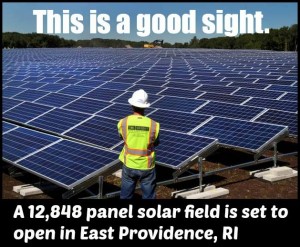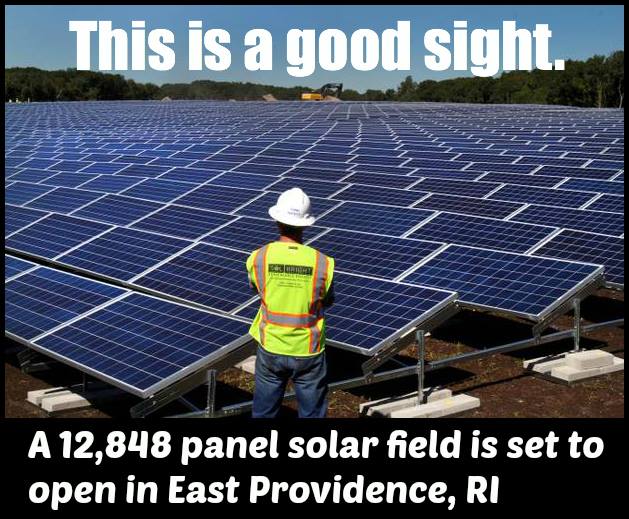 Just about everyone I talk to about renewable energy says that they want solar panels on their roof. Not only do you get the warm and fuzzy feeling of helping save the planet, but in the long run it’s a great investment.
Just about everyone I talk to about renewable energy says that they want solar panels on their roof. Not only do you get the warm and fuzzy feeling of helping save the planet, but in the long run it’s a great investment.
Even without any support through state incentives, solar systems will pay for themselves in a little over a decade, after which they generate energy cost savings for decades. For most people though, that 10 year pay back period is just a little too long, and the upfront capital just a little too large to justify the investment. As a result, Rhode Island’s residential renewable energy industry has been anemic in the years since 2010 when the State’s renewable energy tax credit program was phased out.
Rhode Island solar installers have been forced to look for work in Connecticut and Massachusetts where strong renewable incentive programs have stayed in place. For the sake of the environment and our struggling economy, it’s time to rectify this situation. The good news is that there are already a couple of new programs in place that should help, and there a couple of renewable energy legislative initiatives that could become law this session.
First, what we have:
- Commerce RI (formerly the EDC) has grants available through its Renewable Energy Development Fund (REF). Installers apply for these grants, and they are handed out in three rounds. The first deadline is on April 7th, so if you’re interested in a solar array, find an installer today and let them know. (These are also available for commercial scale projects, so don’t be afraid to think big. Last year, the REF was underutilized)
- PACE: Last year the General Assembly enacted the Property Assessed Clean Energy financing program which makes it easier for individuals to finance renewable projects by amortizing and attaching them to a property’s tax assessment for up to 20 years. More info here. Basically, you get to pay for your system in installments rather than all at once. The only problem is that each municipality has to adopt the PACE program individually through resolution. It’s not too early to start asking your council members whether your town is on board.
Second, the potential:
- Rep. Deb Ruggiero and Sen. Josh Miller have both once again submitted bills to restore the Renewable Energy Tax Credit. This legislation would pay for 25% (up to $3500) of a given residential renewable system in tax credits. Past experience shows that the economic activity generated by this incentive generates more revenue for the State than it gives up through the credits, so everybody wins; solar installers, homeowners, the public at large, and the environment. Help get this legislation passed by sending a letter to your legislators today.
- Representative Ruggiero will also be introducing legislation that would expand and make permanent the State’s immensely successful Distributed Generation pilot program. This program has been used mainly for commercial scale projects like the one in East Providence, but if it’s expanded the opportunity to use it for residential scale projects will arise. You can help support this legislation, too.
All together these programs would make Rhode Island a national leader in supporting renewable energy. They would be a boon to our still struggling building trades, a major benefit to the homeowners smart enough to invest in solar, and a way to reduce our carbon emissions and reliance on dirty foreign fossil fuels. What are we waiting for?!

